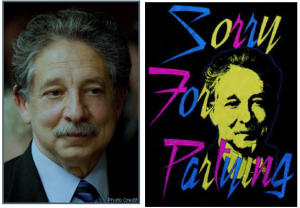Much ink has been spilled over the new world order seemingly announced by last year’s Second Circuit decision in Prince v. Cariou with regard to copyright, fair use, appropriation art, and “transformativeness.” In a nutshell, while roundly criticized, most commentators have taken the Prince decision to announce the apotheosis of “transformativeness” among the fair use factors in § 107 of the Copyright Act. Prince looked at the four statutory factors and applied them in such a way that to be considered “transformative” was to qualify for fair use. Most troubling was the “know it when you see it” character of the opinion. The Google Books opinions took a similar view.
Fair Use and Transformativeness Pushback: Seventh Circuit Takes a Swipe at “Lazy Appropriators”
Topics: Richard Prince, Cheshire Cat, Copyright Act, 17 U.S.C. §106, Seventh Circuit, Prince v. Cariou, Mifflin Street Block Party, Google Books, Campbell v. Acuff Rose, Wisconsin, Sorry for partying, Madison, Copyright, Kienitz v. Sconnie Nation LLC, Judge Frank Easterbrook, First Amendment, transformativeness, Fair Use, mayor Paul Soglin, 17 U.S.C. §107



